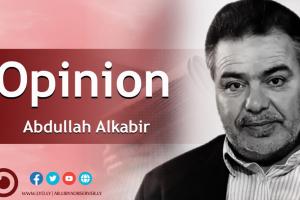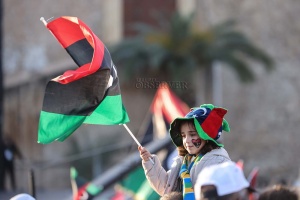By Abdullah Alkabir, Libyan political writer and commentator
Towards a fair distribution of organized plunder!

The path to a fair distribution of national wealth is clear and known, and has been pursued by scores of countries. It is a path based on a solid foundation of constitutional rules and annual budgets proposed by governments and approved by parliaments, with follow-up, control, and accountability by legislative and oversight institutions.
Components of the people, regardless of the level of their ethnic, sectarian, or tribal diversity, at the stages of founding years, agree on the basic rules on which the pillars of the state, and the type of the most appropriate political system will be based. They also agree on the organization of revenue management and spending with a high level of accuracy and care, and according to well-studied plans, based on sources of income, and the requirements for their development and sustainability, especially if it is the approach of a natural resource that is doomed to depletion, or loss of value over time. This requires focus on alternatives and preparing for the post-depletion phase, with the world turning to less expensive alternatives, and more environmental protection, with the adoption of sufficient guarantees to prevent plundering and squandering of national resources.
Local calls for the creation of a fair distribution mechanism seem logical on the face of it, with this clear disparity in living standards, and the accelerating class formation, between those who have millions and enjoy a high standard of living, and those who struggle to secure their basic needs.
However, in fact, such calls for fair distribution of wealth are not really seeking to address this imbalance, and reduce the gap between the people, who are supposed to be equal in their political and economic rights, even if they claim so in their speeches.
The real goal is to seize a greater share of the revenues, maximize influence, and continue the race strife towards power, for the vocal personalities calling for fair distribution of revenues, themselves were never subjected to any accountability for what they have spent, despite numerous confirmed reports released by the National Audit Bureau and Administrative Control, for excessiveness and breaches over the past years.
In order to press for the implementation of this demand, oil fields and ports were repeatedly shut down, and no one discussed the results of such closures, and those behind them claim that they are seeking justice in the distribution of resources. No one has yet questioned the huge toll of the shutdown. As a result, has the requirement of equitable distribution been fulfilled? Have the Marginalized and poor areas got their share? The truth, however, today, everyone is aware that the closure, and the slogans voiced about it by organized media campaigns, are nothing but a means of blackmail to win a larger piece of the pie.
Let us recall the testimony of the former UN envoy to Libya, Ghassan Salame, in an interview with Al-Jazeera Channel, said; "You cannot estimate the extent of the plunder taking place in Libya and the robbery of public funds in this country. Many cling to their positions because they reap the wealth. I only wish they would reinvest it in Libya. Rather, they transfer it abroad or launder it." Salame stressed.
As the situation remained as it is, it has not changed since Ghassan Salame left his position as special envoy to Libya. So, no one would imagine that the uproar about the fair distribution of revenues will end the plundering episode, indeed it may ostensibly appear so, but covertly it is a call for fair distribution of such plunder among the strong rivals.
As for international and regional support, it falls on the side of supporting a party that will receive an appropriate amount of revenue, or to ensure the continuation of a state of equilibrium between the parties to the conflict, and removing any causes that could lead to tensions that should be avoided at the current stage.
Some incidental results may appear from the newly formed Finance Committee, which is charged with following up on revenues and spending, chaired by the head of the Presidential Council. If it deals with the file technically rather than politically, and discloses the results of its work transparently, we may see that many of the allegations about marginalization are false, or that this marginalization is spread across the country, and we may discover that a significant part of the wealth has been appropriated by groups, entities and personalities, who are currently spearheading the call for a fair distribution of revenues, yet they bear the greatest degree of responsibility about wasting wealth and impoverishing the people.
In any case, no outcome will be produced by such action, no committees will work, and justice will not be achieved, neither in the distribution of wealth, nor in other rights, as long as elections are not held, the corrupt are not held accountable, and real institutions are not built that are governed by a constitution, run by officials who realize that the essence of their work is to serve the people, and not to race for power and money.
Disclaimer: The views and opinions expressed in this article are those of the writer, and do not necessarily reflect those of the Libya Observer



